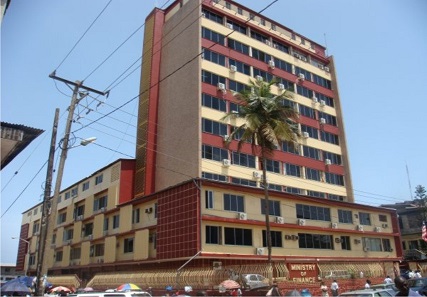A contentious debate has erupted in Liberia between the current government and the opposition Congress for Democratic Change (CDC) concerning a discrepancy of US$63.3 million in the civil service wage bill. This discrepancy was highlighted by former Assistant Minister of Finance and CDC member, Benedict Kolubah, who analyzed several financial reports, including the Civil Service Agency (CSA) 2024 Report, the Ministry of Finance 2024 Consolidated Financial Report, and the Mid-Term Fiscal Year Report. Kolubah alleges that the government has misrepresented the wage bill figures, creating the impression of savings while simultaneously increasing overall expenditure.
Kolubah’s analysis centers on the CSA’s claim of reducing the monthly wage bill from US$23.5 million to US$21.1 million by October 2024, primarily through the removal of “ghost workers.” He argues that if this reduction were genuine, the annual wage bill for 2025 should be around US$253.2 million (US$21.1 million x 12 months). However, the Ministry of Finance’s revised budget indicates a wage bill of US$316.5 million, leaving a difference of US$63.3 million unaccounted for. Kolubah contends this discrepancy suggests the government has surreptitiously added new employees to the payroll, thereby increasing the wage bill despite claiming reductions.
Furthermore, Kolubah points to the CSA’s report of saving US$8.2 million in 2024 through payroll audits and cleansing. He argues this saving should have further reduced the 2025 wage bill. When combined with other reported savings, totaling approximately US$9 million, the actual expenditure on compensation should have been significantly lower than the reported US$282.8 million in the Ministry of Finance’s Consolidated Account Report. Kolubah posits that these inconsistencies and conflicting figures raise serious questions about the government’s financial transparency and accountability.
In response, CSA Director General Josiah Joekai dismissed Kolubah’s claims as misleading and based on a flawed interpretation of the data. Joekai argued that Kolubah’s analysis failed to account for state-owned enterprises (SOEs) like the Liberia Petroleum Refining Company (LPRC), National Port Authority (NPA), and Liberia Electricity Corporation (LEC), whose employees are not included in the CSA’s figures. He argued that the US$316.5 Million reflected the total wage bill for all Government of Liberia employees inclusive of the SOEs Joekai asserted that the CSA’s reports only cover the 105 entities under its purview, not the entire government workforce, thereby explaining the seeming discrepancy. He highlighted the CSA’s efforts to streamline the payroll, including reducing the number of consultants and lowering overall salary expenditures. To further buttress his assertion, Dr. Joekai referenced the removal of over 1,000 ghost names from the Payroll and instituting a Payroll and Consultancy Policy aimed at bringing further sanity to the Payroll System.
However, the Managing Director of the LPRC, Amos Tweh, contradicted Joekai’s explanation, stating that the Ministry of Finance does not pay or control LPRC employees. This contradiction further complicates the issue and raises questions about the accuracy and consistency of the government’s financial reporting. Tweh’s statement suggests a lack of coordination and clarity between government agencies regarding payroll management and reporting, adding another layer of complexity to the already contentious debate.
This disagreement over the wage bill figures underscores a broader concern about transparency and accountability within the Liberian government. The conflicting narratives and contradictory data presented by various officials create an atmosphere of distrust and raise questions about the government’s fiscal management practices. The ongoing debate necessitates a thorough and independent audit of the government’s payroll and financial reports to clarify the discrepancies and ensure accurate and transparent accounting of public funds. The outcome of such an audit could have significant implications for public trust in the government and its ability to manage the nation’s finances effectively. The situation demands urgent clarification to restore public confidence and ensure accountable governance.














